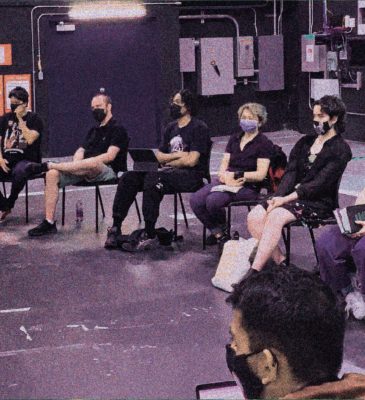Research looks at the impact of COVID-19 on Ontario’s hospitals

In March 2020, Ontario’s hospitals found themselves in a similar situation to many others around the world – in the throes of a global health crisis on which very little was known.
While many hospitals are well equipped to deal with day-to-day emergencies, few were prepared for the disruptive changes that led to provincewide shutdowns, mask-wearing, cancellation of surgeries and medical procedures, staff shortages, and an ensuing confusion about what they were dealing with and for how long.
Looking back at some of the impossible decisions that hospitals were forced to make, two professors from the Schulich School of Business – Raha Imanirad and Adam Diamant – want to evaluate the relative performance of hospitals prior to and after the pandemic. They hope to uncover new insights that will inform and help optimize hospital operations for future pandemics and crises.
“There are certain processes now that are different than before the pandemic – the use of masks, and the prioritization of certain patient populations over others,” says Imanirad.
“These are the management-level decisions that affect patient care.” A graduate of Harvard Business School, Imanirad joined York in 2020. She teaches operations management and her research specializes in health care operations.
“Our research will address which populations of patients were prioritized, which procedures took precedence over others, and whether the processes put in place to ensure the safety of practitioners and hospital staff affected hospital performance and the ability to deliver care,” says Diamant, who teaches operations management and information systems. Diamant’s research focuses on AI, business analytics and operations management in the health industry.
“The research will tease out the departmental- and organizational-level decisions made during the pandemic and how those decisions affected various hospitals in terms of health care delivery,” he adds.
The project will combine causal methods and data envelopment analysis (DEA) to evaluate the clinical capabilities of hospitals before and after COVID-19. The team will access a rich data set provided by the General Medicine Inpatient Initiative (GEMINI), a big data collaborative that helps physicians, health care teams and hospitals unify and examine clinical data. GEMINI contains a data repository collected from more than 30 large hospitals in Ontario.
The research will use both clinical and operational data to create a classification system that identifies and scores high- and low-performing hospitals on their ability to efficiently and effectively deliver care. The performance scores will then help to determine how each hospital’s relative performance ranking was altered due to COVID-19. It will also generate evidence about all adult medical and intensive care hospitalizations during the pandemic and identify marginalized, high-risk and underrepresented populations that were impacted.
The DEA methodology will allow the research team to incorporate multiple metrics that relate to hospital performance, including input-based metrics such as the cost of admission per patient, and output-based metrics such as 30-day re-admission and mortality rates.
“There are many factors at play, including leadership, culture and networks,” says Imanirad.
"This project will measure how successful hospitals were in collaborating and utilizing resources."
“Our findings will help hospitals improve their preparedness for future pandemics and health emergencies, and to promote a more equitable approach to health care.”
“COVID was and still is an extraordinary time for many organizations,” says Diamant. “Hospitals did their best to make good managerial decisions with very limited information. Now is the right time to step back and learn about the ramifications of some of those decisions, to better prepare for the future.”
Read more

The Biophysics of age-related visual brain diseases
Innovative technique will bring to light new treatments and diagnostics for vision-related diseases

Research for a better future
Creating positive change in areas related to decolonization; the integration of AI in healthcare; mitigating racism in classrooms; sustainable arts; and inclusive health care

Full Circle: Alum partners with Cinespace studios and creates student opportunities
Partnership will let students experience behind-the-scenes of a billion-dollar film industry

